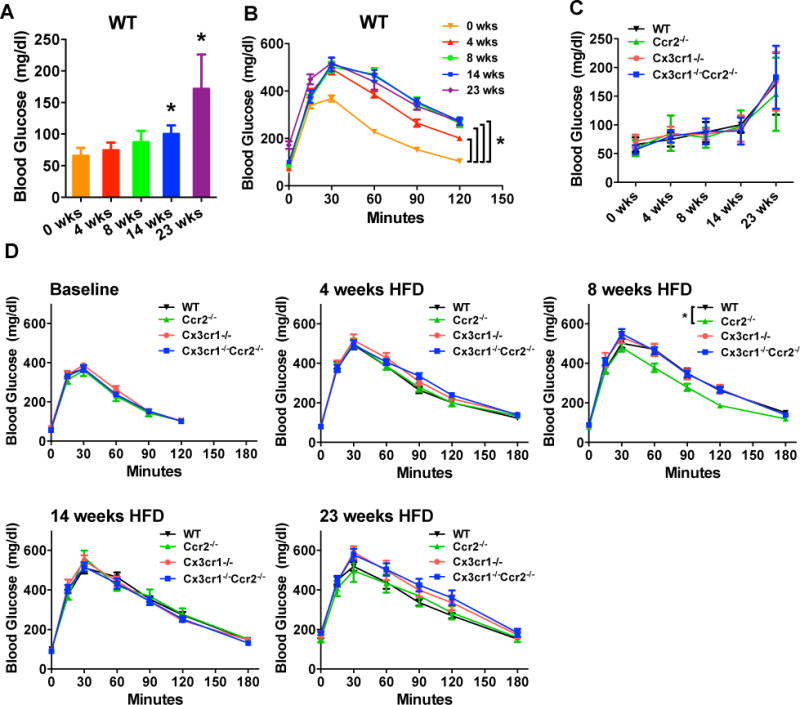Figure 3. Deficiency of Ccr2, Cx3cr1 or both did not modulate HFD-induced hyperglycemia and glucose intolerance in male mice.

Fasting blood glucose levels and IPGTT after an overnight fast were measured prior to and after 4, 8, 14 and 23 weeks of HFD in male WT, Ccr2−/−, Cx3cr1−/− and Cx3cr1−/−Ccr2−/− mice (n=11 WT, 11 Ccr2−/−, 9 Cx3cr1−/−, 14 Cx3cr1−/−Ccr2−/−). A and B: Fasting glucose levels were increased and glucose tolerance was impaired in WT mice by HFD. C and D: Fasting glucose levels or glucose tolerance were similarly affected by HFD between groups (two-way ANOVA analysis), although at 8 weeks of HFD, Ccr2−/− mice showed difference in glucose tolerance at a single-time point. Data are mean±SEM. *, P<0.05 vs. male WT mice.
